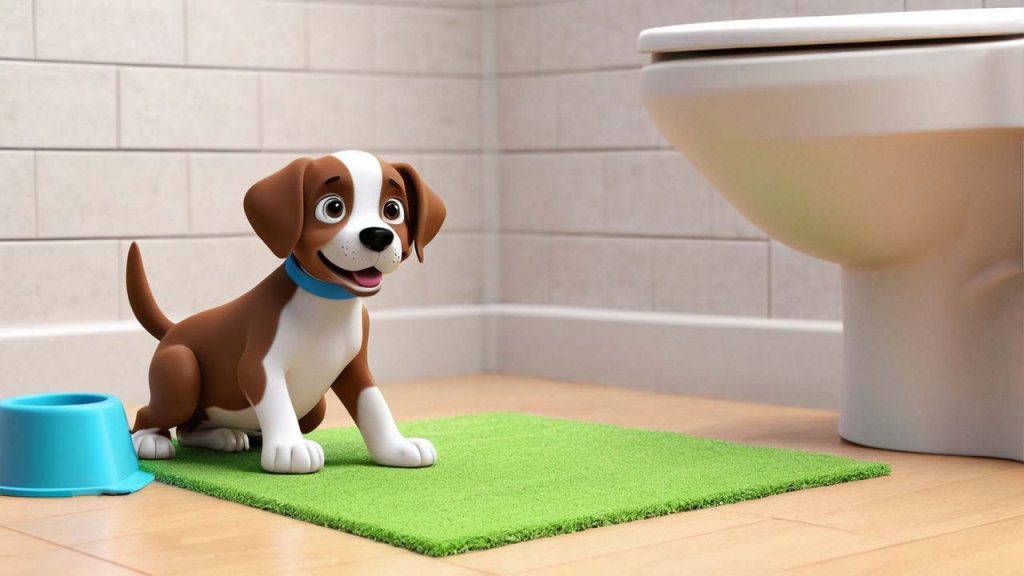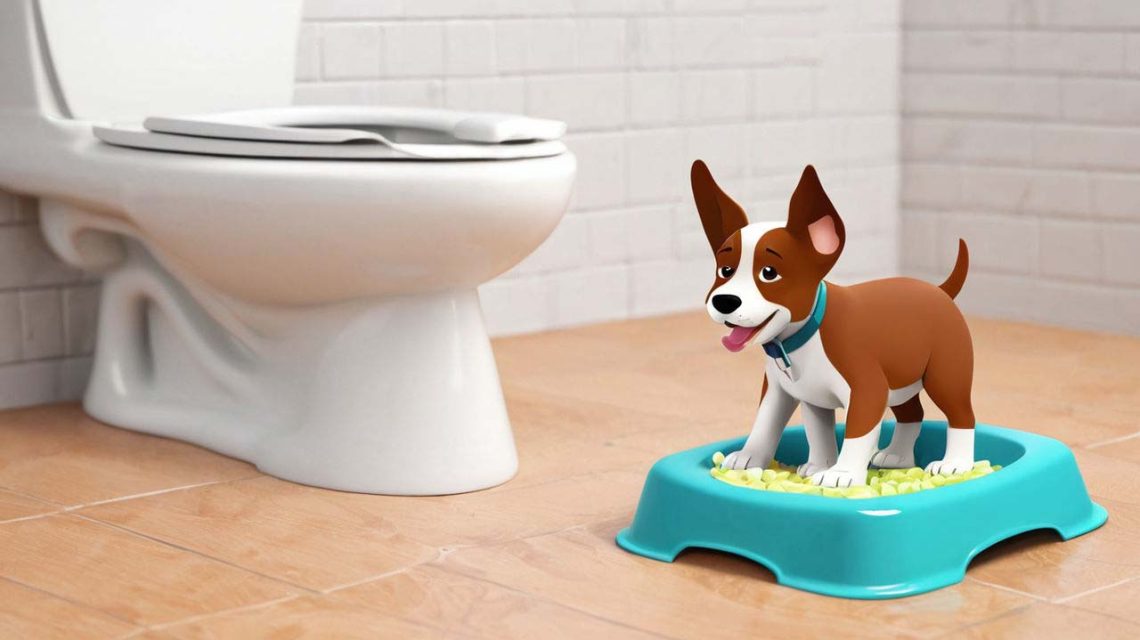Bringing a new puppy home is an exciting time, but it also means taking on the responsibility of training them, including the all-important potty training. With the right guidance, consistency, and a bit of patience, your puppy can master potty training in no time. Let’s dive into some puppy potty training tips that will help you get started on the right foot!
Why Puppy Potty Training Tips Are Essential
Potty training isn’t just about keeping your home clean. It’s a way to communicate with your puppy, building a foundation of trust and routine that will make training in other areas easier. When you follow these puppy potty training tips, you’ll be giving your puppy clear guidelines and a schedule they can depend on.
Setting Up a Potty Training Routine for Your Puppy
The first step in potty training is establishing a routine. Puppies thrive on consistency, so setting up a predictable schedule will help them learn when and where they’re supposed to go.
Creating a Regular Schedule
Start by taking your puppy outside every couple of hours, especially after meals, naps, and playtime. Consistency is the key here. As your puppy learns the routine, they’ll start to associate going outside with the opportunity to relieve themselves.
Picking a Designated Potty Spot
Choosing one specific potty spot in your yard helps your puppy understand where to go. Lead them to this spot each time, and they’ll quickly pick up the habit of using the same area. This can also make clean-up easier for you.
Using Commands to Encourage Potty Behavior
Introduce a specific command like “go potty” or “do your business” each time you take them outside. Repeating this command while they relieve themselves reinforces the behavior, making it easier for them to understand what you’re asking in the future.

Rewarding Your Puppy’s Success: Positive Reinforcement
Positive reinforcement is one of the most effective puppy potty training tips you can use. When your puppy feels encouraged, they’re more likely to repeat the behavior.
Offering Treats and Praise
Every time your puppy successfully goes potty outside, immediately reward them with a treat or enthusiastic praise. Quick rewards make the connection between the action and the reward clear in your puppy’s mind, helping them remember to repeat it.
Timing is Everything
To make the reward effective, be sure to offer it right after they finish going potty. Delaying even by a few seconds can confuse your puppy, as they might not connect the reward with the act of going outside.
Managing Indoor Accidents
Accidents are bound to happen during potty training. Instead of seeing accidents as setbacks, use them as learning opportunities for both you and your puppy.
Staying Calm and Avoiding Punishment
When an accident happens, resist the urge to punish your puppy. Yelling or scolding can make them fearful and anxious, which may lead to more accidents. Instead, clean up the mess thoroughly without drawing too much attention to it.
Cleaning Up Accidents Thoroughly
Using an enzyme-based cleaner is essential for removing odors that might attract your puppy back to the same spot. These cleaners break down any lingering scent that could signal to your puppy that it’s an acceptable potty spot.
Crate Training as a Potty Training Aid
Crate training can be a useful tool for managing your puppy’s potty habits. When used correctly, a crate provides a safe space for your puppy while encouraging them to hold their bladder.
Choosing the Right Size Crate
The crate should be just large enough for your puppy to stand up, turn around, and lie down comfortably. Too much space can lead to accidents, as your puppy might designate one end of the crate as a potty area.
Introducing the Crate Gradually
Introduce the crate slowly, allowing your puppy to get used to it with the door open at first. Offer treats and praise to make it a positive space. Once they’re comfortable, begin closing the door for short periods, always monitoring their reaction.
Monitoring Your Puppy’s Signals
Learning to recognize your puppy’s potty signals can make the training process much smoother. Each puppy may have unique signs, but most will have some common behaviors before they need to go.
Common Potty Signals to Watch For
Signs like sniffing the ground, circling, or whining often mean your puppy needs to go. When you notice these behaviors, quickly take them to the designated potty spot.
Acting Fast to Prevent Accidents
Promptly responding to your puppy’s signals prevents accidents and reinforces the idea of going potty outside. Over time, your puppy will learn to communicate these signals to you.
Adjusting Feeding Times for Easier Potty Training
What goes in must come out! Feeding your puppy on a regular schedule can help regulate their potty habits and make training easier.
Creating a Consistent Feeding Schedule
Feed your puppy at the same times every day. Consistent meal times lead to a more predictable potty schedule, which makes it easier for you to know when they need to go outside.
Avoiding Late Night Snacks
Try not to feed your puppy close to bedtime. This can prevent middle-of-the-night potty breaks, helping both you and your puppy develop a more restful nighttime routine.
Avoiding Common Potty Training Mistakes
During the potty training process, certain common mistakes can lead to confusion or setbacks. Being aware of these mistakes helps you steer clear of them and keep the training on track.
Being Inconsistent with Routine
Consistency is the foundation of effective potty training. Stick to a routine as much as possible, as this consistency helps your puppy understand when it’s time to go outside.
Skipping Positive Reinforcement
If you forget to reward your puppy, they may not connect the reward with the act of going outside. Even after your puppy begins to understand, continue using positive reinforcement to strengthen the habit.
Frequently Asked Questions About Puppy Potty Training Tips
How long does it take to potty train a puppy?
- Potty training varies, but most puppies begin to show progress within a few weeks. With consistency, many puppies can be fully trained in 4 to 6 months.
At what age should I start potty training my puppy?
- Start potty training as early as 8 weeks old. Young puppies can learn quickly, and the sooner you establish routines, the easier it becomes.
Should I use puppy pads for potty training?
- Puppy pads can be useful, especially for small breeds or apartments. However, they may slow outdoor training if overused, so transition gradually if you plan to move training outside.
What should I do if my puppy keeps having accidents?
- Increase the frequency of outdoor breaks and closely monitor their signals. Patience and consistency are key to correcting recurring accidents.
How do I know if my puppy is fully potty trained?
- A fully trained puppy will go several weeks without accidents, consistently signaling when they need to go out. At this stage, you can relax the schedule slightly while still monitoring their behavior.
What if my puppy needs to potty during the night?
- Keep a consistent evening routine, and if your puppy wakes up, calmly take them outside. Avoid excessive interaction to prevent them from seeing nighttime potty breaks as playtime.


